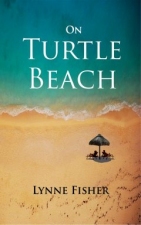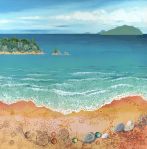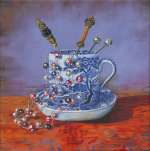
An avuncular, kind-hearted man, a clever and insightful man with his own gentle humility springs to mind when I hear his name now, after becoming a little more acquainted with his teachings on a counselling course I did and through my own reading and most rewardingly through a rare BBC interview I listened to a few months ago – where he talks about education, religion, consciousness, and human nature. (Link at the end of the post).
His work has been influential in anthropology, philosophy and literature, and for our purposes it’s interesting to note that he was also an artist, a craftsman, and of course a writer. Here is a link to Why Jung Still Matters, by Mark Vernon, where he describes how the theories of Jung are used in the business world and in branding, also pointing out that the Myers-Briggs Type Indicator (MBTI personality typing) derived by Jung is ‘the most popular non-clinical measure of personality type in the world’ which I find quite staggering.
Just to give you a flavour of how influential he’s been, our widely accepted father of modern analytical psychology has given us the valuable concepts of:
1. The archetypes at work within us as individuals: the persona, the shadow, the animus, the anima, and the self.
2. The psychological complex – unconscious accumulated patterns of emotions and behaviours which we form in our earlier life in the making of a socialised self, but which later don’t serve our inherent self and cause internal conflict. But as we become conscious of these, we can work to dispel them and become aligned with our true self.
3. The value of the unconscious mind in finding hidden there a great deal of positive and life-enhancing qualities, accessible through dreams and other routes to enable greater self awareness and help us on our personal journey to…
4. Individuation – a lifelong process of differentiation of the self out of each individual’s conscious and unconscious elements. Jung considered it to be the main task of human development to achieve a wholeness within us and greater wisdom.
5. Midlife transitions/crisis – which may be necessary to achieve individuation.
6. Collective unconscious that operates within all of us – a shared and socially inherited unconscious.
7. Personality theory – degrees of extraversion and introversion on which the typology tests are based.
And this personality theory brings me more to the point of this post, as it’s something I’ve been interested in for a couple for years now, ever since I took the free abridged version of the MBTI test. It’s not widely known about in the UK, but I’m sure many of you will be aware of it and possibly know your type in the U.S, with it being used in the working environment and within the business world. To understand your type brings greater self understanding and personal productivity. But for me it was a revelation, and a real find. What also has became clear to me is that most writers, artists, craftsmen etc have strong introverted tendencies such as: liking time alone; enjoying introspection; happy doing solo activities like reading, painting, gardening, music; who are driven to learn, investigate, question – in short to do a lot of thinking and contemplation! Who get burned out with too much socialising, who abhor self-promotion, and who would rather have a cosy night in than go to a party. Hey, I can dance in the kitchen any time I want, right? And as for small talk, well I can pretty much do without it. In the past, for me, being an introvert was something I felt I had to make up for, or to correct in myself. It was something I had to get over. But guess what? Not any more. We introverts are out and proud now, with lots of sources on social media of like-minded opinions, thoughts, feelings and insights to reflect upon.
Here is a result from a poll taken in 2012 by Katherine Tyrrell, on her blog ‘Making a Mark’ for artists and art lovers, where the participants rated themselves, so you can see where I’m coming from.

And here is a link to a useful blog for introverts and sensitive people which I follow. I also found a site specifically for my Jungian type of INFJ which is by writer and writing coach, Lauren Sapala, which you may find interesting and which is for all writers who are of the introverted persuasion. She’s also written a book for INFJ writers, which I’ve found incredibly useful, but which can also be helpful for any writers who ‘think a bit too much’ and for whom self criticism is a bit of a curse. Who needs creative criticism when you can do more than enough for yourself?
Here are the personality testing sites if you are interested in taking the test. The first is really engaging and visual, where the types are associated with specific roles in life. The second is probably more in depth.
https://www.16personalities.com/
And here is an explanation of how the theory actually works.
But now over to Jung for some great quotes to ponder. You’ll probably be familiar with a few of them, but I hope there is something new for you here too:
Everything that irritates us about others can lead us to an understanding of ourselves.
Knowing your own darkness is the best method for dealing with the darknesses of other people.
Your visions will become clear only when you can look into your own heart. Who looks outside, dreams; who looks inside, awakes.
I am not what happened to me, I am what I choose to become.
Until you make the unconscious conscious, it will direct your life and you will call it fate.
The first half of life is devoted to forming a healthy ego, the second half is going inward and letting go of it.
There is no coming to consciousness without pain. People will do anything, no matter how absurd, in order to avoid facing their own Soul. One does not become enlightened by imagining figures of light, but by making the darkness conscious.
We cannot change anything unless we accept it.
I always thought that when we accepted things they overpowered us in some way or other. This turns out not to be true at all, and it is only by accepting them that one can assume and attitude towards them.
The least of things with a meaning is worth more in life than the greatest of things without it.
The privilege of a lifetime is to become who you truly are.
The creation of something new is not accomplished by the intellect but by the play instinct acting from inner necessity. The creative mind plays with the objects it loves.
And finally, here is the man himself…
From http://thepowerofideas.ideapod.com/carl-jung-meaning-human-existence-rare-bbc-interview/
(top image from Pinterest)
















Dear Lynne, have just spent the last forty minutes or so listening to that wonderful Jung interview. I had always regretted that since l’ve never been a TV watcher, I had n’t seen that interview. It is so famous, and as Douglas said at the end of watching it with me, it is the most significant interview he’s watched.
I was thrilled to hear those famous words when Freeman asked Jung if he believed in God, and he replied _” I know.”..
Am ,finding such pleasure and stimulation reading your past blogs, which never vary in quality….
LikeLiked by 1 person
Yes, it’s a special interview, isn’t it? I was thrilled to watch it too. And somehow when Jung says ‘I know’ as in he knows God, it can make you believe it too, which is a wonderul testament to him, the man. Funny you say, how my blogs are maintaining quality…I’ve been wondering about that lately, so it’s beautifully timely of you to say this and I really appreciate it! Cheers, Valerie :>)
LikeLiked by 1 person
I’ve taken this kind of test before, though not from this platform. It’d never heard of the fifth letter, in my case “T” which stands for “turbulent” (fittingly enough.) Anyway, I came out an INFJ, as usual, and in this version, have been dubbed The Advocate. Very intriguing, and potentially most useful, interpretation of my type.
LikeLike
Hi Andy, pleased you’re an INFJ too and that you found the post useful. I’m a moderate as opposed to turbulent Advocate. It seems our type are always analysing the world around us, and that certainly fits! I have found it incredibly useful identifying with my type (being too hard on ourselves etc) and Lauren’s book came along at a good time for me, as I’m now in the zone of working on publication of my novel through Amazon, a very similar stage to yourself and your musical. I think my artist character, Lucy, is a typical INFJ – no surprise that I wrote her that way! Cheers, Andy.
LikeLiked by 1 person
Interesting post! It had been a while since I took the personality test so I decided to see if anything had changed. Still the same as a couple of decades ago and also the same as you! I’m going to check out Lauren Sapala’s work. Thanks for a thought-provoking post.
LikeLike
Thank you for your comments, Cheryl, and I’m pleased you did the test again to find the same results, and another INFJ, even better! I had a sense of coming home when I did it a couple of years ago. A great deal about myself suddenly made sense and I follow an INFJ facebook group now. Lauren Sapala was a great find for me and her book is so worth reading for our type who happen to be writers.
LikeLiked by 1 person